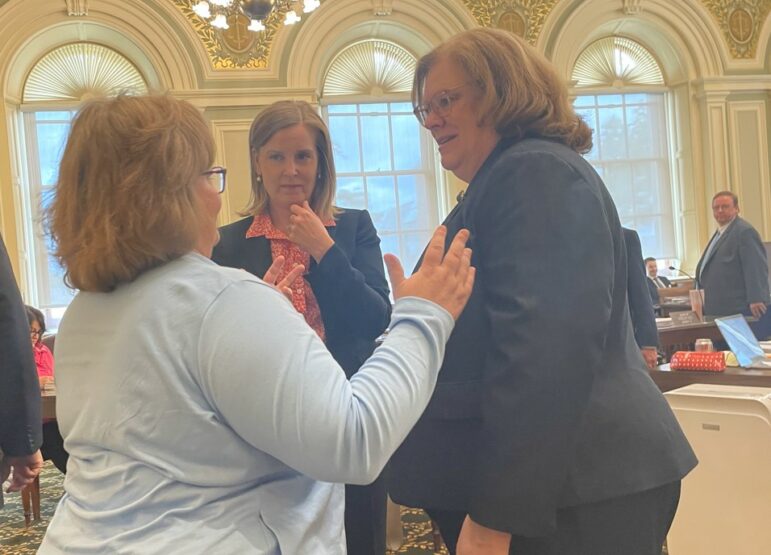By Michael Davidow, Radio Free New Hampshire
Hopscotching through the wreckage of the daily news, it gets harder and harder for me to fasten on any one item as being worthy of writing about in this column. Something that seems important one day hardly seems to matter the next. Tragedy gets followed by farce gets followed by shock gets followed by horror. It sometimes seems that the only thing of lasting import, demanding to be noticed by every one of our citizens, is how well the Red Sox have played this summer. But I don’t want to jinx them by saying that out loud. You don’t mention a no-hitter in the middle of the seventh inning.

Courtesy photo
Michael Davidow writes Radio Free New Hampshire
Speaking of baseball, though, a friend of mine recently sat through one of my son’s t-ball games, and he came away with a wonderful insight. In t-ball, every batter gets a hit. Every fielder fields the ball. Every play goes to first. Every kid eventually scores. These events play out with their own especial logic, too; each one happens independently of the other. The game’s regular sequence gets fractured. He said it was like watching time itself get broken apart; no longer being an element that matters, it becomes flexible, it gets shattered, and the whole game lies on the field, broken into its constituent pieces. He loved it. It reminded him of a Picasso.
As he spoke, I could see exactly what he meant: this was baseball viewed through a kaleidoscope. And I soon realized that much of a kid’s life away from a baseball field is like that, too. Time doesn’t rule childhood, the way it does adulthood. It’s okay for ice cream to come before dinner. Dinner and ice cream are separate aspects of our corporeal being. It’s okay for playtime to come before getting dressed. They are both important; though actually, playtime is probably more important, because playtime is fun, and getting dressed is pointless unless it’s cold outside. It’s also okay to get dressed in stages. Those pants will always be there. They can wait until this lego gets attached to this other lego. They can wait for another lego, too. In fact, they can also be inside out. What, in other words, is daddy’s problem.
Daddy’s problem, speaking in general terms, is usually that he is late for work. But why indeed should that matter to my son. In his world, the fact is self-evident, that a shortstop not only can but must throw a just-fielded ball on three or four or five bounces to a first baseman (who will drop it, of course) long after a runner has already passed the bag. What seems unreal is, in fact, real; the importance of that throw. What seems real is, in fact, unreal; whether that throw results in an out.
When I can see the world through his eyes for even one moment, it fills the old and hardened shell of my quotidian existence with light; with endless possibility; and, to be fair to him, with endless work to do, as well. Because when cause and effect are divorced from each other, there is no longer any excuse to not do exactly the things that are most important to you. Which tend to be the things you love, which only sometimes concern lego pieces. And that, in a nutshell, is the essence of all love: to care, without the corresponding concern that one’s care will make a difference.
How does this translate to politics, to Trump and not-Trump, to China and Korea and Brexit and the wall? I will not say that it does. But in a world that seems to have gone mad, in a world in which I personally comfort myself with thoughts of the Civil War, because back then, we Americans actually hated each other so much that we shot and killed each other, and at least things aren’t that bad (not yet) (ditto the street riots of the 1960’s, folks); and even though I am late for work again; and in the middle of a summer when the Sox are playing so damned well . . . it may just help to remember that we should all still do the things we love.
And that we would be wise to let that be our touchstone as our community moves forward, towards the next election, and towards our nation’s eternally uncertain future.
Michael Davidow is a lawyer in Nashua. He is the author of Gate City, Split Thirty, and The Rocketdyne Commission, three novels about politics and advertising which, taken together, form The Henry Bell Project. His books are available on Amazon.
Views expressed in columns and opinion pieces are those of the author and do not reflect those of InDepthNH.org.





